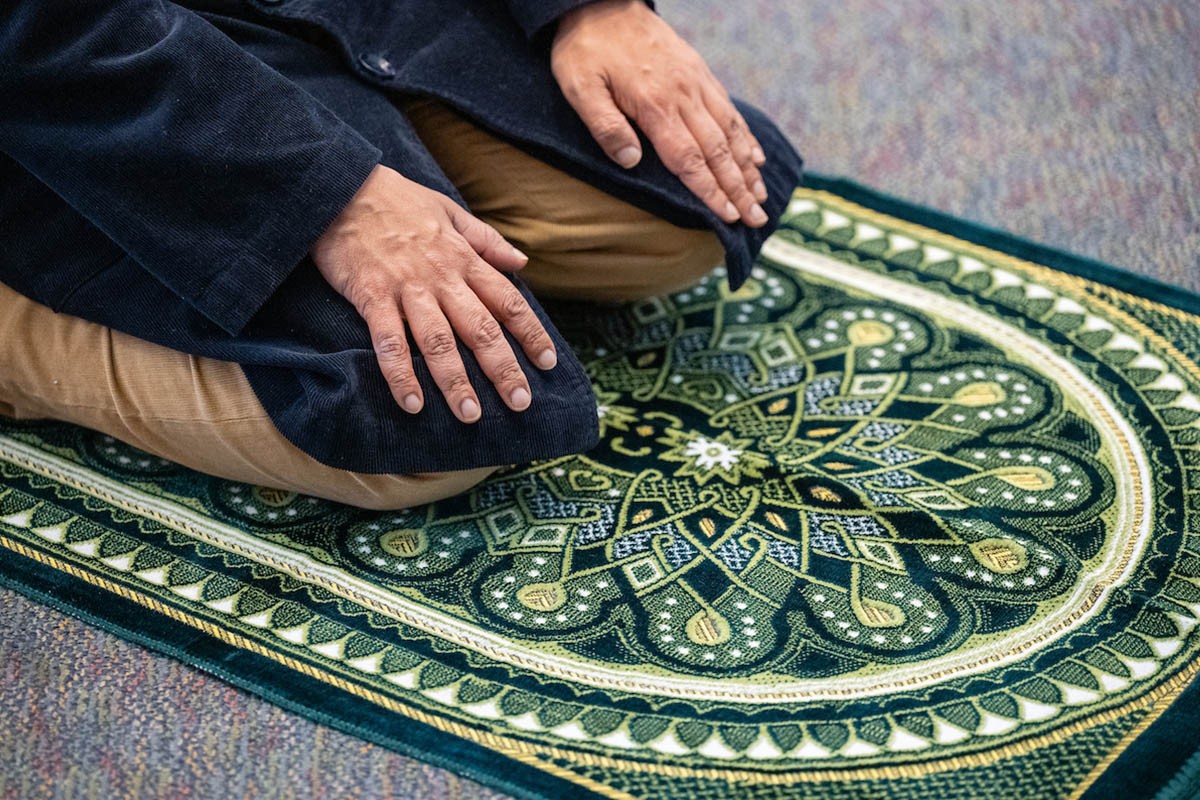SPIRITUALITY
“Do not go outside yourself, but enter into yourself, for truth dwells in the interior self." -St. Augustine of Hippo
MULTIFAITH SPIRITUALITY

Multifaith Contemplative Practices Series
Campus Ministry hosts monthly opportunities to learn about and practice various contemplative experiences. Each session features a practitioner sharing brief introduction and instruction, a time of practice, and question and answer followed by refreshments.

Jummah Prayer
All are welcome to attend Jummah, Muslim congregational prayer, held every Friday, 1:25 to 2 PM, usually in West Lounge. A sermon is offered by a local imam, followed by traditional prayer. Co-sponsored by the Muslim Students Association and Campus Ministry.
SPORTS & SPIRITUALITY
Sports and the way that we play the game can reveal to us who we truly are as a player, as a teammate, and as a person. In turn, our journey towards holistic development will ultimately shape how we live our lives and will impact how we play the game.
The Sports & Spirituality Program seeks to walk with student-athletes along their journey towards discovering their best selves by providing opportunities for prayer, self-reflection and meaningful connection with one's self, friends and teammates both inside and outside of sports.
Team Retreats & Reflections
Retreats and reflections are opportunities for teammates to step back from their demanding schedules to renew their spirits and form deeper relationships with themselves and one another through personal reflection, team-building activities, and conversation. Retreats and reflections are tailored to the team and can range from full days to an afternoon or evening. For more information please contact David Walsh.
Timeout
Timeout is a reflection group that invites all student-athletes, regardless of their faith or spirituality, to take a break from their busy schedules to reflect on and talk about life inside and outside of sports. During the fall 2019 semester, Timeout will meet every other Sunday evening from 7-8 PM in Tracy Lounge in St. Rita Hall. For more information please contact
Athletes in Action
Athletes in Action is a student-led bible study to help student-athletes plug in with other Christians and learn how to take their passion, faith, and sport to new places, and understand what it mean to play for an Audience of One. Meetings are Thursday nights at 7:30 PM in the Devon Room in the Connelly Center.
In partnership with Habitat for Humanity, Villanova Athletics organizes a service trip the week after spring semester final exams that provides student-athletes with the opportunity to work towards social justice and the common good by living out Villanova's Augustinian values of veritas, unitas, and caritas. For more information please contact Lynn Tighe.
MINDFULNESS

Mindfulness is the practice of focusing on the present moment and developing an increased awareness of experiences as they happen.
Centering Prayer
Centering Prayer is space for quiet, meditative prayer that cultivates a place of rest and attentive presence in the midst of our busy and distracted lives. We gather in a small group and sit quietly together. Join us virtually on Tuesday and Thursdays from 1 to 1:30 pm. Contact Brian McCabe for the most up-to-date information. All are welcome.
Mindfulness Mondays
Research has shown that mindfulness can improve quality of life, work performance, mental health, and physical well-being. We invite you to join us for mindfulness on Mondays from 1 to 1:30 PM in the Multifaith Prayer Room of St. Rita's Hall or on Zoom. All are welcome.
FIVE MINUTES WITH GOD
We offer the Villanova community a program called Five Minutes with God. Within the five-minute time frame we first look at a concrete situation in the world, illuminate it with God’s Word and the Augustinian tradition, finishing with a small prayer where we commit ourselves to building a better world.
